Well cared for Sarracenia need to be divided about every three years. Even plants in a bog benefit from division. Sarracenia like to grow into open soil and you will get your best pitchers on the edge of the clump. On the interior of the clump the rhizomes have a tendency to grow over each other resulting in weak growth.
The best and only good time of the year to divide Sarracenia is just before the plants start growing in the spring. Watch the plants carefully and at the first hint they are growing, do the divisions. Sarracenia are tough plants and do survive dividing at other times of the year but it can take them much longer to recover.
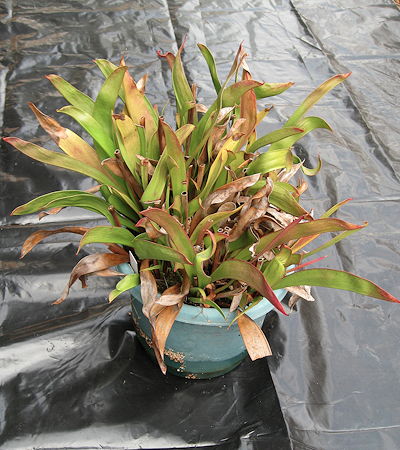
This plant is in desperate need of division. It is a hybrid that is mostly Sarracenia flava and S. oreophila. It was divided three years ago.
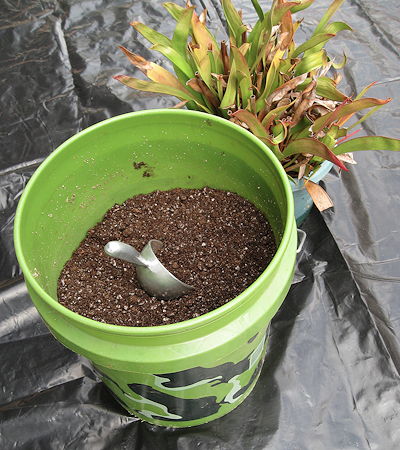
To work on your plants you need a location you can get dirty. A potting bench is handy. I work on a sheet of plastic over a patio or deck.
You will need a bucket of soil. I use a 50:50 mix of peat moss and perlite. You can use coarse sand instead of perlite. You will also need a pruning shears and/or a knife. I wear plastic gloves.
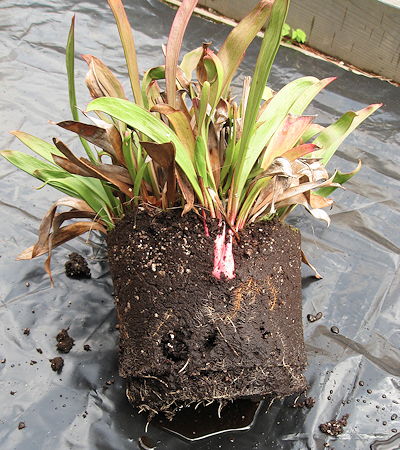
To unpot the plant just grab the leaves and pull the plant out of the pot. As you can see here the plant had already hit the edge and started growing down.
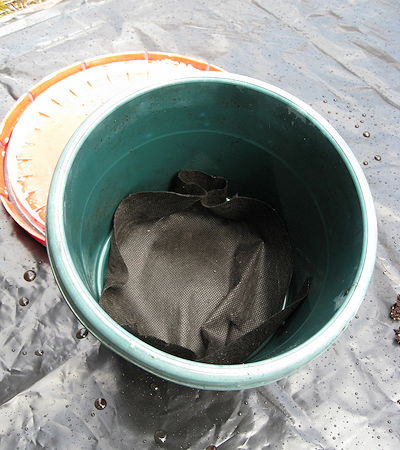
I am reusing the same pot. I put some weed block cloth in the bottom of the pot to help keep the soil from washing out.
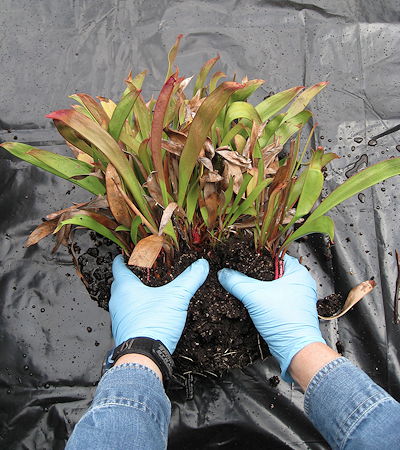
I let the plant tell me where it wants to be divided. Grab large chucks of the clump and "worry" them back and forth to find an area where the old rhizome is weak or small. I tried all around the plant before deciding on this place.
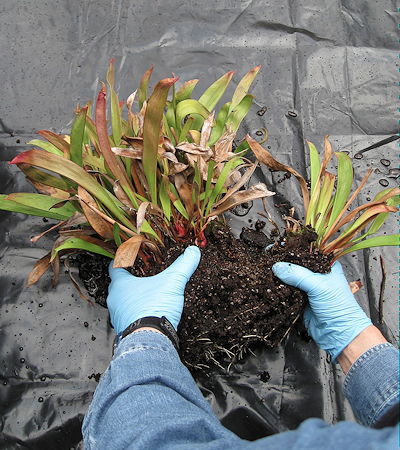
It came off easily with a nice size division. I like to have at least three growth points on each division. The plants recover much better and you have nice pitchers the first year with three growth point divisions. If you divide to single growth points the plants struggle for the first year or two.
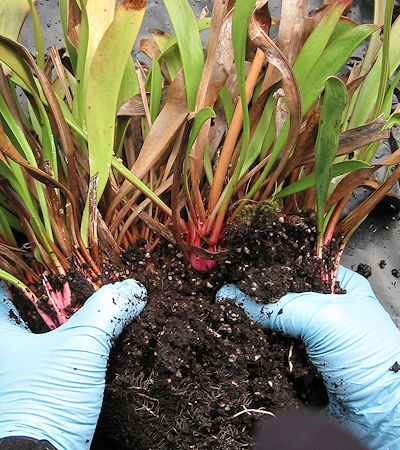
Now back to the main clump and the "worry" process starts again. If the "worrying" is not working, skip this step and go onto the cleanup step.
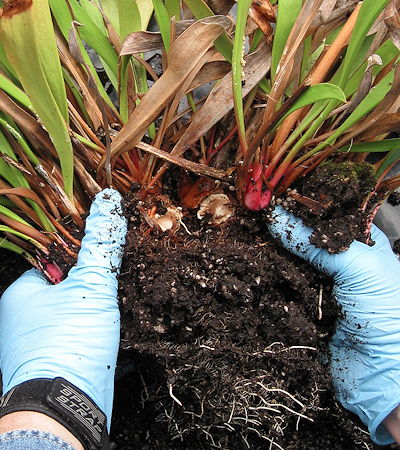
This plant had been divided the previous time to five growth points. I found a place in the center of the clump where the old rhizome was weak and snapped it. Keep working at it finding other weak areas behind the newer growth.
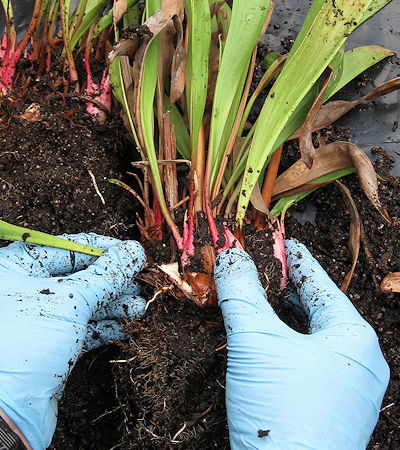
After you have your new smaller clumps, carefully peel off the old leaves. If the old leaf does not want to come off easily, leave it.
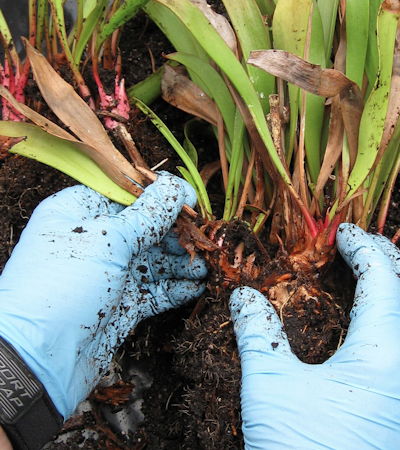
But do make sure you remove all the old brown leaves. The thatch of leaves at the base is an excellent breeding ground for mealybugs. You do not want that.
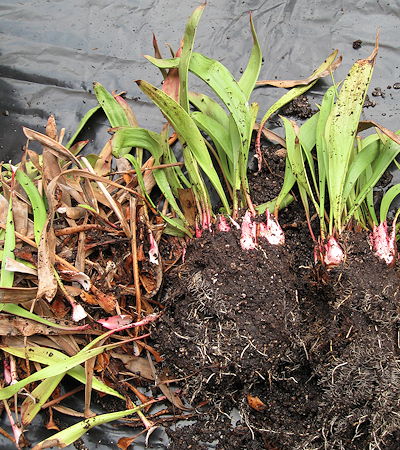
Lay out your divisions and inspect them after cleaning. Look for soft spots on the rhizomes and creatures.
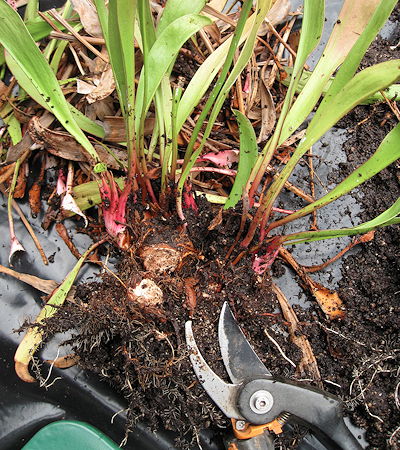
One really needed to be divided more but it took the pruning shears to cut the old rhizome.
If your plant is very vigorous you might need to use the pruning shears or a large knife to cut the rhizomes for all the divisions. It is easier to find the places to cut if the plant is cleaned first.
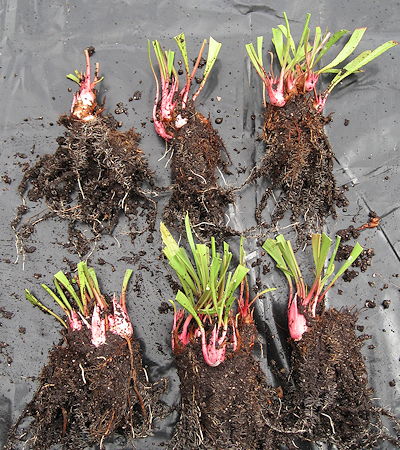
Now give the plants a hair cut.
There are a few one and two node divisions. They happen.
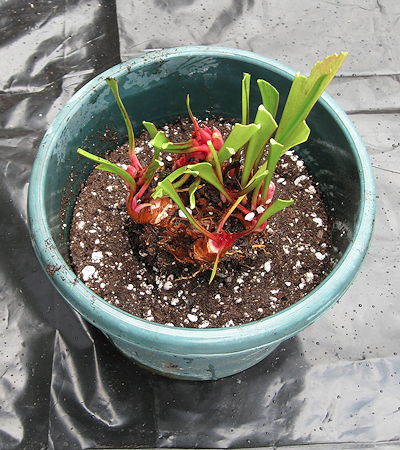
I put the biggest clump back into the old pot. You can reuse the old soil or put it in your garden. This is new soil. I fill the pot half way, put in the plant at the level I want it to be ultimately and water.
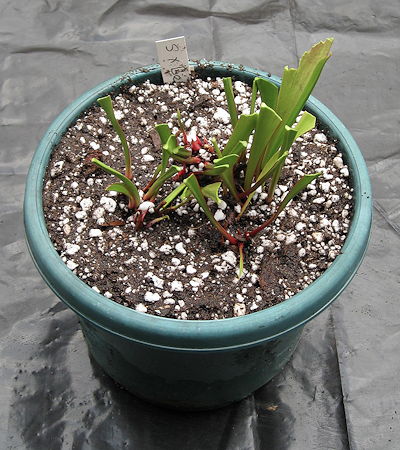
Then I finish filling the pot with soil and water again. At this point it is easy to fine tune the height and location in the pot, adding more soil if necessary. Make sure the plant has a tag. Use a soft pencil to write on the tags.
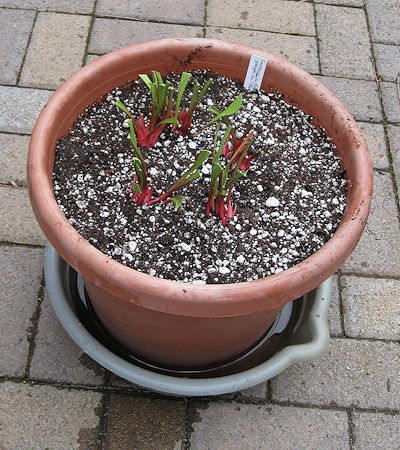
The other divisions can be put in a larger display pot. This is a present for some friends. The large pot will make it easier for them to take care of the plants.
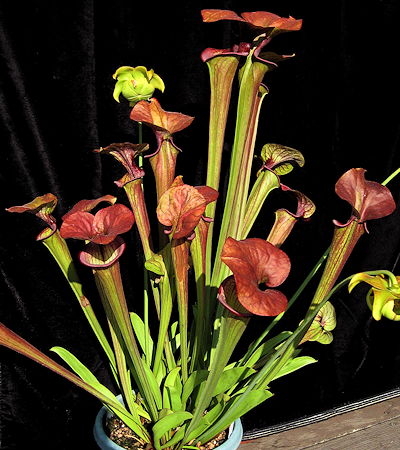
The plant 5 months later.
-- John Brittnacher
